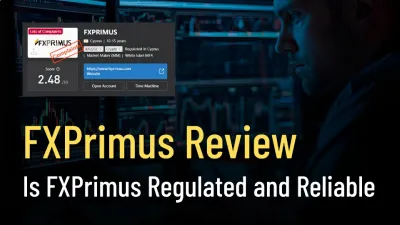简体中文
繁體中文
English
Pусский
日本語
ภาษาไทย
Tiếng Việt
Bahasa Indonesia
Español
हिन्दी
Filippiiniläinen
Français
Deutsch
Português
Türkçe
한국어
العربية
Tender ban exemptions allowed
Abstract:National Treasury has issued an update to its notice advising organs of state to put all tender processes on hold apart from those advertised before 16 February.
National Treasury has issued an update to its notice advising organs of state to put all tender processes on hold apart from those advertised before 16 February.

The original notice advised that tenders advertised on or after 16 February 2022 be held in abeyance and no new tenders be advertised. This was due to the ongoing legal battle between Afribusiness and the Minister of Finance over the validity of the 2017 Preferential Procurement Regulations. The notice followed a majority judgement from the Constitutional Court dismissing the minister's application for leave to appeal a Supreme Court of Appeal (SCA) judgement that the promulgation of the regulations was unlawful.
Although the SCA suspended the declaration of invalidity for 12 months, the ConCourt failed to provide clarity in its judgement on the status of this suspension. As a result, the minister brought an urgent application to the ConCourt seeking clarity on the status of the suspension and National Treasury issued the advisory “to curtail the risk of awarding tenders based on regulations that may no longer be valid”.
In its latest update on the matter, National Treasury has clarified that the original note was an advisory and not an instruction or direction. It also noted that the advice does not apply to procurement with a Rand value of less than R30 000 which is obtained through price quotations and petty cash.
National Treasury has also revealed that organs of state can request an exemption from the provision of the Act “for a specific procurement or category of procurement requirements”.
“Such requests should be limited to procurement requirements that cannot await the new [procurement] regulations or the Constitutional Courts clarity,” the department said.
Acknowledging the need to process such exemption requests as quickly as possible, National Treasury says it has put a process in place that will enable the minister to consider the applications on a daily basis “as far as possible”. Provision has also been made for the acting Chief Procurement Officer to communicate the ministers decisions on exemption requests to the applicants.
In the meantime, National Treasury says it has filed its application with the ConCourt and, on 10 March, the registrar of the court gave directions to parties on the filing of papers during March. The application seeks confirmation on whether the 2017 Regulations remain valid until 15 February 2023, unless repealed sooner; or are no longer valid from 16 February 2022, the date of the ConCourt judgment.
On the same day draft Preferential Procurement Regulations were published in the national and provincial Gazettes for public comment. The closing date for submissions is 11 April 2022. After this, the regulations will be referred to the relevant parliamentary committee for review and Cabinet will need to approve the revised bill before it can be submitted to Parliament. The regulations will need to get the approval of both the National Assembly and the National Council of Provinces before it can be sent to President Cyril Ramaphosa to sign it into law.
This state of affairs has had a significant impact on government tenders and National Treasury's offer of exemptions for urgent requirements is unlikely to make much of a difference over the coming weeks. The purchasing constrictions have hit the software and services industries particularly hard with only 27 and 34 tenders on offer respectively. Comparatively, the hardware and telecoms sectors are experiencing slower declines with 31 and 17 requests.
Disclaimer:
The views in this article only represent the author's personal views, and do not constitute investment advice on this platform. This platform does not guarantee the accuracy, completeness and timeliness of the information in the article, and will not be liable for any loss caused by the use of or reliance on the information in the article.
Read more

FXPIG Exposed: Traders Report Withdrawal Denials, Fund Scams & Regulatory Flags
Do you face massive losses due to astonishing spreads at FXPIG? Have you witnessed multiple trade executions by the Georgia-based forex broker even though you wanted to execute a single order? Has this piled on losses for you? Is the FXPIG withdrawal too slow? Maybe your trading issues resonate with some of your fellow traders. In this FXPIG review article, we have shared these issues so that you can introspect them thoroughly before deciding on the best forex trader.

Does WealthFX Generate Wealth or Losses for Traders? Find Out in This Review
The name WealthFX sounds appealing for all those wishing for a rewarding forex journey. However, behind the aspiring name are multiple complaints against the Comoros-based forex broker. These trading complaints dampen the broker’s reputation in the forex community. In this WealthFX review article, we have shared some of these complaints here. Take a look!

FXPrimus Review: Is FXPrimus Regulated and Reliable for 2025?
FXPrimus is a CySEC-regulated forex broker offering MT4, MT5, and WebTrader with flexible leverage and diverse trading instruments since 2009.

IG Japan to Halt Crypto ETF CFDs as FSA Tightens Rules
IG Japan will end cryptocurrency ETF CFDs after new FSA guidance, forcing traders to close positions by January 31, 2026, under stricter crypto rules.
WikiFX Broker
Latest News
The Debt-Reduction Playbook: Can Today's Governments Learn From The Past?
Trillium Financial Broker Exposed: Top Reasons Why Traders are Losing Trust Here
FIBO Group Ltd Review 2025: Find out whether FIBO Group Is Legit or Scam?
Amillex Withdrawal Problems
Is INGOT Brokers Safe or Scam? Critical 2025 Safety Review & Red Flags
150 Years Of Data Destroy Democrat Dogma On Tariffs: Fed Study Finds They Lower, Not Raise, Inflation
CQG Partners with Webull Singapore to Power the Broker’s New Futures Trading Offering
【WikiEXPO Global Expert Interviews】Ashish Kumar Singh: Building a Responsible and Interoperable Web3
Trump: India\s US exports jump despite 50% tariffs as trade tensions ease
IEXS Review 2025: A Complete Expert Analysis
Currency Calculator




